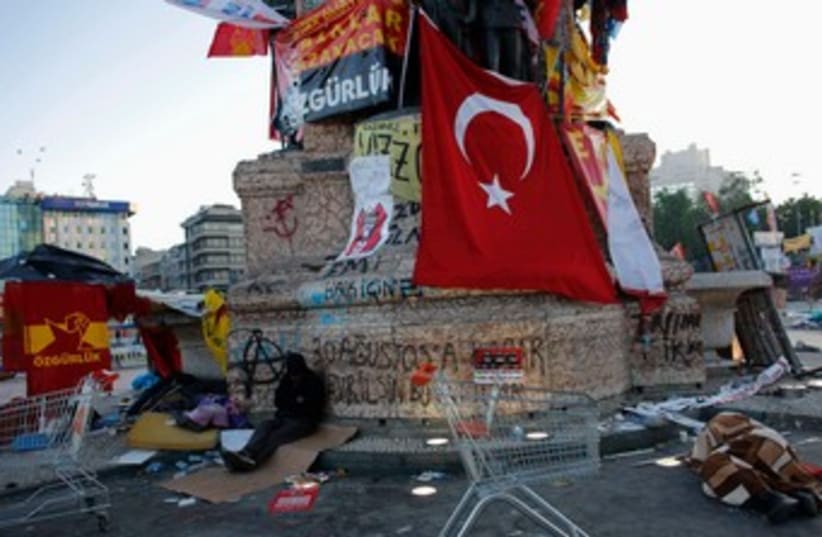Erdogan has carried out sweeping changes since he waselected in 2002 at the head of a party combining nationalistsand reformers as well as Islamist elements. He had curbed thepower of an army that had toppled four governments in 40 yearsand carried out some liberal social and economic reforms.
But critics, outside the party and some within, had grownincreasingly uneasy at what they felt to be an authoritarianstyle. At the height of the protests he appeared to appealincreasingly to the Islamist and nationalist core of his party,further alienating secularists and other groups.
Four people were killed and some 7,500 wounded in the police crackdown, according to the Turkish Medical Association. It largely ended when police cleared a protest camp on the square on June 15.Istanbul governor Huseyn Avni Mutlu said the authorities had not given permission for the rally."Our constitution allows staging demonstrations without giving notification, but the legislation says that applying to the authorities for permission is mandatory," Mutlu said, announcing on his twitter account that the Gezi Park would be open to public on Sunday."I cannot act against the law. So we won't allow these gatherings."Government officials have accused a number of artists, journalists and members of the business community of being part of a conspiracy to topple the government.